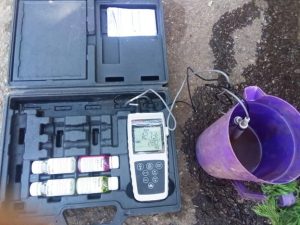 Ambient Water Quality Standards
Ambient Water Quality Standards
For a long time now, Zambia has been using water quality standards for drinking water to regulate the quality of raw water in natural water bodies. Though not recommended, the country has had no choice in the absence of not having ambient water quality standards specifically meant for raw water. This not only made the cost of doing business high but also did not help much in sustaining the aquatic ecosystem. Many have argued that use of water quality standards for drinking water in regulating raw water is too stringent to an extent that it compels users to invest more in ensuring that effluent is treated to an extent of almost drinking water before discharging the same in any natural water body.
In response to numerous concerns expressed by many stakeholders, WARMA, in collaboration with the Zambia Environmental Management Agency (ZEMA), National Water Supply and Sanitation Council (NWASCO), Zambezi River Authority (ZRA) and working together with the Zambia Bureau of Standards (ZABS), have developed the Ambient water quality standards for Zambia. The process of developing Ambient water quality standards has been going on since 2016 and has been consultative involving all major stakeholders. The ambient water quality standards and guidelines ZS 1182 (Ambient Water Quality – Specifications) and ZS 1183 (Ambient Water Quality – Guidelines) have since been gazetted under Gazette Notice No. 88 of 2021.
What are they and what value do they bring
Ambient water refers to open waters such as rivers, lakes, streams, and groundwater as opposed to closed water supply systems that distribute treated water or wastewater. Ambient water quality standards are the allowable amount of materials, as a concentration of pollutants, in water. The standards are set to protect against anticipated adverse effects on human health or welfare, wildlife, or the environment, with a margin of safety in the case of human health.
In Zambia, raw water which are in their ambient state (water in rivers, lakes, dams, groundwater), are usually measured against Drinking Water Quality Standards which are meant for processed or treated water. Limits for pollutants which can be discharged into water bodies and the environment by industries or mining activities are regulated by the Effluent Discharge Limits provided under the Environmental Management Act No. 12 of 2011. Therefore, the thresholds for ambient water quality standards are somewhere in between Drinking Water Quality Standards and Effluent Discharge Limits. This is the level of water quality required to keep a water body in its natural or ambient state. Ambient water quality standards have thus been developed to safeguard water resources from adverse effects arising from pollution through mining, industrial, agricultural, or anthropogenic activities.
The value that these standards bring are many:
- Zambia will soon witness reduced cost of doing business – Good ambient water means industries which heavily rely on water for their process systems such as breweries, beverage companies, commercial utilities, hydropower and livestock industry among others will have the cost of doing their business lowered because the water being supplied for industrial processing would not need as much treatment, cleaning or boiling as compared to using polluted water sources.
- With these standards, Zambia’s natural habitats will be preserved – Water kept in its ambient state is sufficient to support natural habitats and preserve the integrity of flora and fauna in water bodies
- Protection of Zambian Public from water borne diseases – Ambient water quality standards will protect public health and the environment because they help maintain a standard of water quality consistent with its designated uses. Polluted water sources have a negative effect on public health
- Zambia will witness an improved water resources management regime – this will promote equitable access of water of acceptable quantity and quality for national development in Zambia
WARMA has commenced implementation of these ambient water quality standards and guidelines countrywide. Therefore, the general public is called upon to remain vigilant and report to WARMA any person or institution carrying out any activities that poses a threat of pollution to any water body.
 |
 |
 |
|---|
